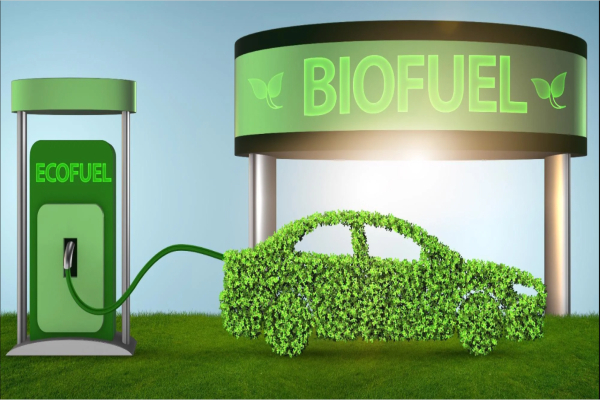Fuel ethers like Ethyl Tertiary Butyl Ether (ETBE) and Methyl Tertiary Butyl Ether (MTBE) have been widely adopted in several countries

The Energy and Resources Institute (TERI) supported by the Asian Clean Fuels Association (ACFA) has recently released a report on Biofuels Program which signals immense potential for India to improve India's biofuels program.
The report, titled “Enhancing India’s Biofuels Program: Examining the Role of Oxyfuels in India’s Clean Fuel Transition,” highlights complementary strategies that India could deploy to reduce reliance on imported fossil fuels by adopting fuel ethers as part of the national fuel strategy.
Fuel ethers like Ethyl Tertiary Butyl Ether (ETBE) and Methyl Tertiary Butyl Ether (MTBE) have been widely adopted in several countries including Japan, Germany, Netherlands, China, France, Spain, Malaysia, Taiwan, Mexico, and others with great success.
ETBE has been seen improving the energy content of Ethanol by 3 times, while reducing carcinogenic benzene emissions by 27% compared to ETOH direct blending. ETBE has also been seen to improve ETOH Fuel Efficiency and hence improving mileage, leading to major cost savings to consumers.
ETBE (Ethyl Tertiary Butyl Ethanol) is often referred to as "Easy Blend to Ethanol" because it can be easily blended with gasoline in the refinery, unlike Ethanol, which requires significant CAPEX for blending infrastructure. ETBE is produced by combining Ethanol with Isobutene, while MTBE is made from Methanol and Isobutene, which is present in C4 streams from refineries and crackers.
The report iterates that it is imperative for India to look at an immediate and cost-effective solution to align with the global standard of minimum of 98 RON (or at least 95 RON) and upgrade from the current average of 91/92 RON). The upgrade of octane from 90 RON to 95 RON will allow India to benefit from an immediate fuel economy improvement by 2% to 10%. With improved fuel performance automakers can meet CAFE and global fuel standards.
Dr. Vibha Dhawan, Director-General, TERI said, "India’s multi-fuel opportunity is significant, and the role of fuel ethers is transformative in driving our sustainable energy future. The government’s landmark policy measures, including the removal of subsidies for petrol and diesel, incentivizing electric vehicles, and scaling-up emerging technologies, mark a decisive shift towards cleaner energy sources. Fuel ethers in the form of ETBE/MTBE can catalyze positive economic and social impacts.”
ACFA leadership said, “The promotion of India’s ‘ethanol economy’ through the Ethanol Blended Petrol (EBP) Program has been a significant step in the effective realization of our goal for a self-reliant fuel ecosystem. While the ethanol blending programme has numerous benefits, challenges, such as potential implications on food security due to increased feedstock production and the technical impact of ethanol-blended fuels on the environment, warrant thoughtful consideration."
"Additionally, the infrastructural challenges related to ethanol storage and transportation further emphasize the need to explore complementary strategies. There are numerous benefits associated with blending ethanol and ethers like ETBE and MTBE, improving further cleaner burning of petrol in engines and acting as octane boosters, replacing undesirable compounds that may have critical technical or toxicological properties,” added ACFA leadership.
Subscribe to our newsletter & stay updated.